House price crash “a thing of beauty”
The federal election campaign has seen both sides promise to use the federal budget to deliver another house price boom.
Labor has undertaken to establish a state-sponsored subprime mortgage scheme by allowing all first-time home buyers to purchase a home with only a 5% down payment, with the government (taxpayers) guaranteeing 15% of the borrowers’ loans.
Labor has also directed mortgage lenders to exclude student debt in their mortgage serviceability evaluations.
The Coalition’s policies are equally inflationary for house prices. These include allowing first-time homebuyers to use their super savings as a down payment and making new home mortgages tax-deductible for first-time purchasers.
Therefore, regardless of which side wins Saturday’s election, their policies will increase borrowing capacity, pull more buyers into the market, increase household debt and property prices, and divert even more of the nation’s capital away from productive investment.
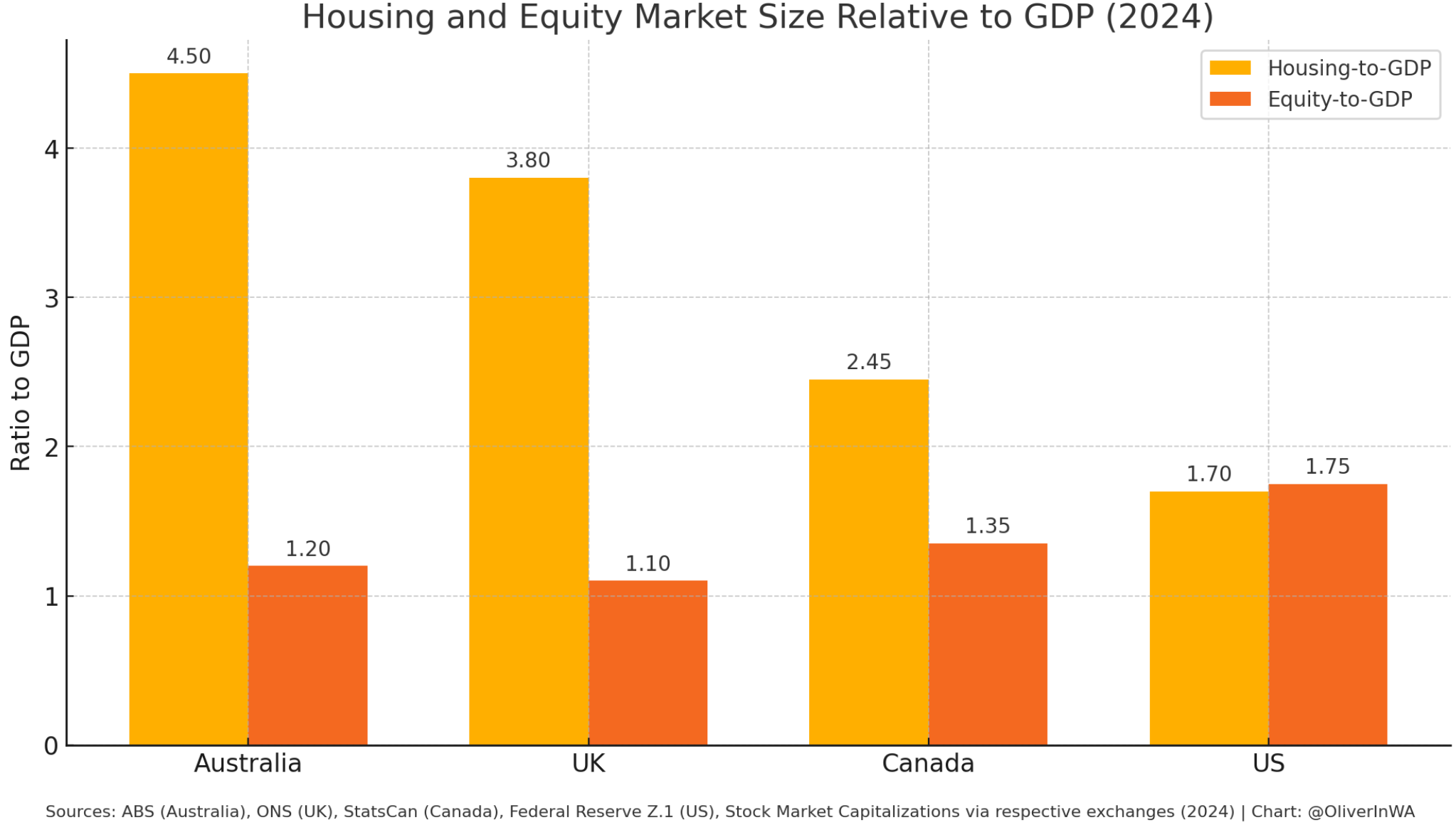
While Australia’s two major parties are busy inflating the world’s largest house price bubble, New Zealand’s politicians are slowly letting their housing market deflate, restoring affordability.
The following chart from Justin Fabo of Antipodean Macro shows that property values in New Zealand have fallen dramatically from their peak.
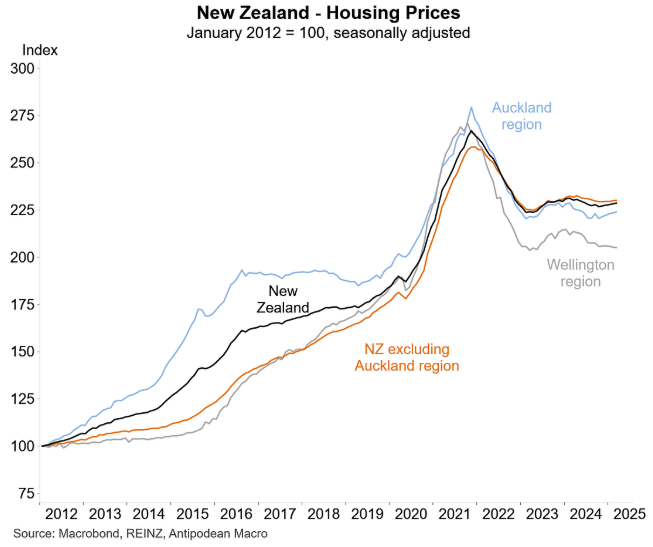
New Zealand’s real inflation-adjusted house price has also plummeted to levels last seen in late 2019, shortly before the pandemic.
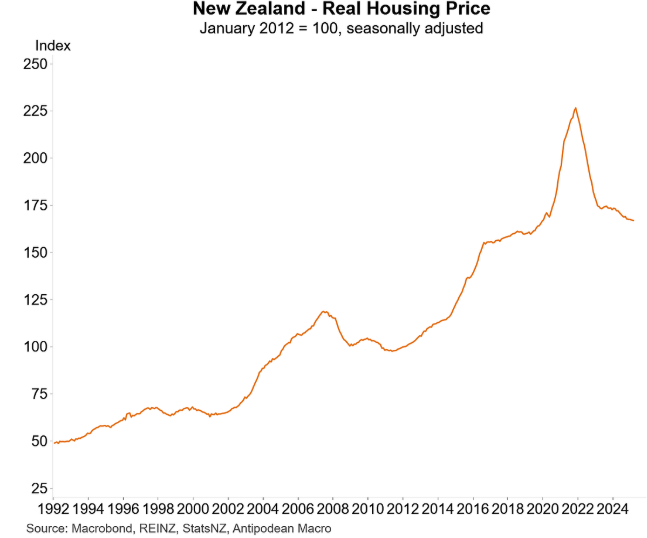
New data from property website Realestate.co.nz shows that the national average asking price of residential homes on the site fell for the second consecutive month in April to $851,746, down from $884,995 in February, representing a 3.8% decline.
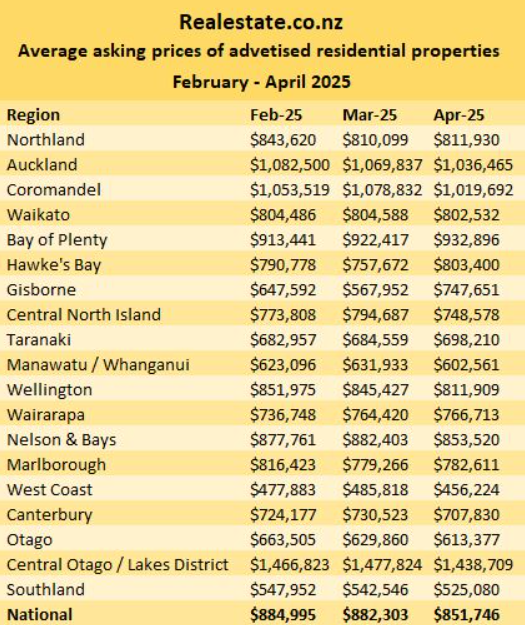
The price decline was attributed to an ample supply of properties on the market.
Listings have more than doubled in the past four years, increasing from 15,838 in April 2021 to 35,924 in April 2025.
“There’s plenty of stock on the market, but we’re not seeing a boom in sales activity to move it through yet”, Realestate.co.nz Chief Executive Sarah Wood said.
The data is unusual because February and March are typically the busiest months for residential real estate, yet the market is already on a downward trend heading into winter.
New Zealand mortgage rates have declined dramatically following the Reserve Bank’s 2.0% monetary easing.
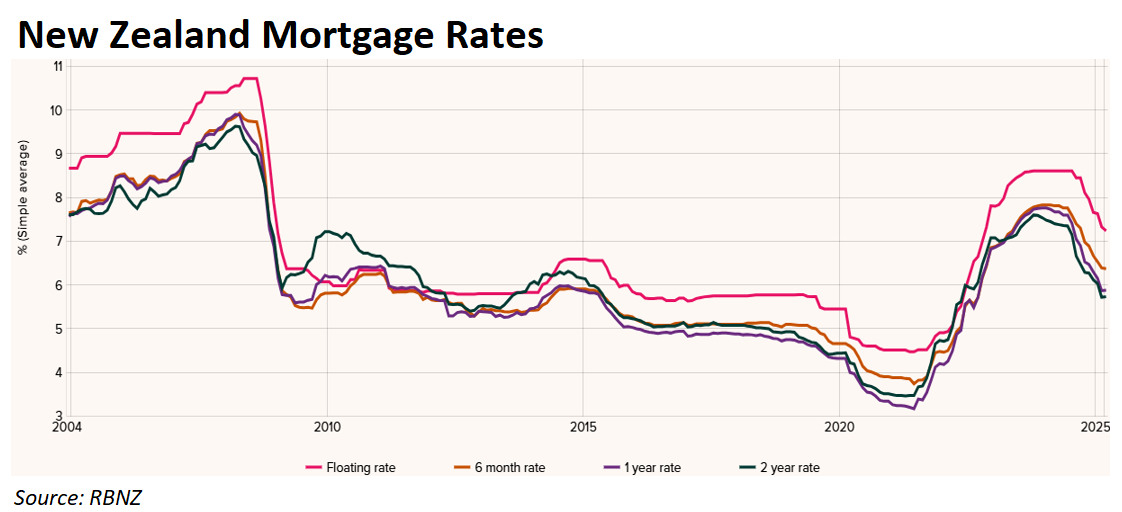
Decreased home prices and interest rates have significantly increased mortgage affordability.
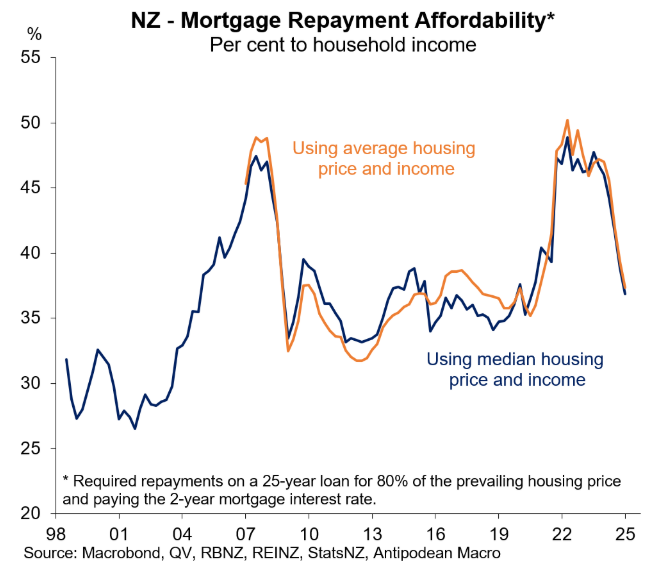
Mortgage repayments as a percentage of household income have declined from around 50% to just over 35%.
As a result, New Zealand home buyers are in the box seat, with vendors cutting prices and mortgage interest rates falling.
If housing affordability is to improve, lower prices are necessary. New Zealand’s politicians seem to understand this concept.
Unfortunately, Australia’s politicians do not share this view.
